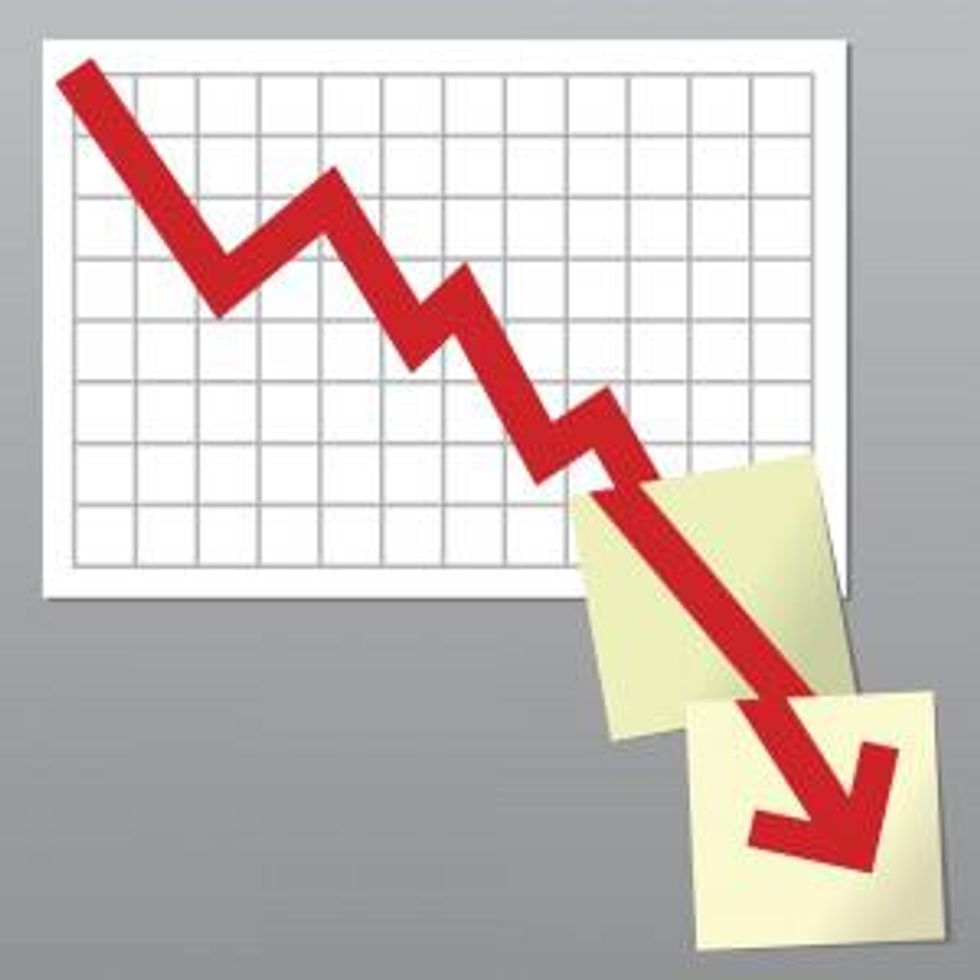Gold’s steep declines have left many gold investors unsure what to do.
A week after Thomson Reuters released its Gold Survey 2013, predicting that the metal would reach the mid-$1,800s by year end, the gold market crashed in the midst of a massive sell-off.
Gold embarked on a brutal two-day decline that started last Friday. The metal touched $1,321 on Monday before closing at $1,352. The resulting 14-percent drop was the steepest since February 1983, according to Bloomberg.
Tuesday, gold managed to end the day up $16.70, at $1,369. But these paltry gains were of little comfort to the masses.
Why did gold prices fall?
It is widely believed that gold’s downfall was triggered by the latest chapter in the EU debt crisis: Cyprus.
“The market is to some extent predicated on perception,” Peter Hug, Kitco’s global trading director, explained to Gold Investing News.
“When it was suggested that the EU would force (which they have no authority to do) Cyprus to sell its gold reserves to meet financial requirements, the markets reacted. It wasn’t the Cyprus story, because with about 10 metric tons of gold (a small amount), the selling of the gold would have had a minimal effect. It was the perception that should financial situations deteriorate in Italy, Spain, Portugal and Greece, which hold significantly larger positions, they would also be sellers,” said Hug.
Liquidation triggered algorithmic computer selling. The further gold fell, the more stop orders were blown, which created a self-perpetuating cycle of margin calls and gold sales.
The fears surrounding central bank gold sales are unwarranted, according to Peter Schiff, CEO of Euro Pacific Precious Metals.
“It is certainly possible that some of the indebted European central banks could be forced to sell gold to meet their obligations. But if you look at the countries that have the greatest global surpluses and huge foreign exchange reserves, they barely own any gold. I think they are going to look at any sales by these European nations as the opportunity to increase their gold holdings, pushing up the price of gold in the process. Net-net I think you see central bank buying,” he explained to Gold Investing News.
But Guy Debelle, assistant governor of the Reserve Bank of Australia, raised eyebrows Tuesday, stating that gold has no intrinsic value.
“Gold often has a high price because people believe that other people believe it’s worth a lot. When you describe other markets like that, the word ‘bubble’ gets thrown about,” Bloomberg reported Debelle as saying.
Gold supporters shaken up
The metal’s two-day decline wiped out $1 billion of hedge fund manager John Paulson’s wealth. His partner released a statement saying that Paulson is sticking to the thesis that gold is the best hedge against inflation and currency debasement, as per information from Bloomberg.
But gold’s staunch supporters are being put to the test. Many are questioning gold’s value and its role in the current environment.
Since most investors buy gold as an inflation hedge, David Wilson, director of metals research and strategy at Citigroup (NYSE:C), questioned why people would be buying it now. There’s no inflation, he declared on CNBC, and therefore, his firm sees no reason to buy gold.
A CPM Group precious metals advisory notes that longs have gotten nervous. They have long awaited cataclysmic events that haven’t materialized.
The hyperinflation that drove many to gold is nowhere on the horizon. And surpluses in labor, real estate and manufacturing capacity are unlikely to allow inflation to spiral out of control, CPM added.
“Nor has the European Central Bank, the euro, the dollar or any other major bank failed over the past few years,” the firm said. Investors are now wondering if it isn’t time to sell.
GFMS anticipated US developments as being a key driver of gold prices this year. The consultancy also expected support in the form of “gold friendly shocks” from Europe.
But Neil Meader, head of precious metals research and forecasts at GFMS, also left leeway for a softer gold market.
“There’s arguably clearer light at the end of the tunnel in that we can perceive a return to something more like normality for the macroeconomic backdrop, and that could easily entail the start of a secular bear market perhaps in late 2013 or more probably in 2014,” he said at the launch of the Gold Survey.
“The market has sold off on the false premise that the US economy is recovering and the Fed is going to be able to withdraw the stimulus. Neither one of those are true. The economy is not recovering and the Fed can’t withdraw the stimulus,” Schiff said.
“People don’t think there’s any inflation to worry about,” he added. “But the only reason that it appears the economy is recovering is because of the illusion created by inflation.”
Gold outlook
In light of the now substantially lower levels where gold resides, Meader would not confirm whether GFMS’ outlook remains the same. He declined to comment, noting that the firm will release its Silver Survey next week.
“We were saying that gold was highly unlikely to see $1,800 for many years, even before the rout in prices in the past two days,” Jeffrey Christian, managing director of CPM Group, told Gold Investing News.
He pointed to the aforementioned advisory, which is dated April 4, the same day Thomson Reuters GFMS launched the Gold Survey 2013. It states that reduced investor interest at current prices, coupled with seasonal weakness, could potentially drive prices toward $1,430 at some point during the second or third quarter.
In an updated market alert, CPM cites expectations that gold’s decline will stop, with $1,350 likely to be the bottom. From there, bargain hunters will probably show up. Gold is also likely to see some support from India, especially since the wedding season lies ahead, the firm said.
Gold could recover to $1,450 in the short term, according to CPM. But after that, the firm sees the metal stabilizing somewhere above $1,400 through Q3.
Schiff said there is still a lot of time between now and the end of the year, so it is certainly possible that gold could get back above $1,800.
He said it would be premature to say that we seen the lows. There are going to be people looking to short any rally, he warned, so the market could be choppy for a while.
“Remember, we had a 35-percent decline in gold prices in 2008. That’s far bigger than the decline we had this time. But that didn’t do anything. It didn’t stop gold from making new highs. Ultimately I think gold goes to $5,000 or higher, so the cheaper you buy it, the better you are.”
“You have people rushing to get out the market at the same time [now] and not that many buyers to accommodate it. But when everyone rushes to get into the market, there will be even fewer sellers,” he warned.
Securities Disclosure: I, Michelle Smith, hold no direct investment interest in any company mentioned in this article.
Related reading:
Gold Drops Over 8 Percent in Worst One-day Decline Since 1983
Some Silver Lining in Gold Price Drop






